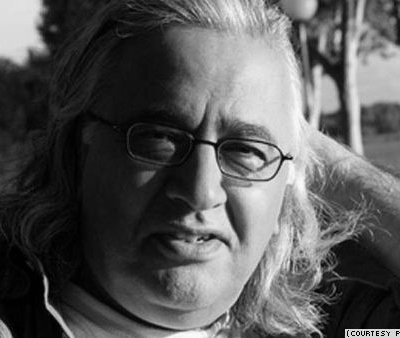
Last Update
Dec. 31, 2020
Organisation
Unknown
Gender
Male
Ethnic Group
Persian
Religoius Group
Shia
Province
Tehran
Occupation
Journalist
Sentence
No sentence - Killed as part of the Chain Murders
Status
In exile
Institution investigating
IRGC Intelligence
Charges
Unknown
Houshang Asadi In exile
Houshang Asadi is a journalist and writer. His book Letters to My Torturer won the International Human Rights Book Award in the summer of 2011, and it was later presented as evidence to the United Nations special rapporteur on human rights in the Islamic Republic of Iran.
In 1970, Houshang Asadi completed his undergraduate studies in journalism, graduating from the Faculty of Social Sciences at the University of Tehran. He was subsequently hired by the Kayhan newspaper where he initially worked as a member of the Kayhan’s road accident news service. Asadi went on to work as an editor for the newspaper’s reports section and later became the deputy editor-in-chief of the newspaper. However, a year after the 1979 Islamic Revolution, he and a number of his colleagues were fired and later arrested as part of a purge of journalists at Kayhan.
Asadi was first arrested during the reign of Mohammad Reza Shah Pahlavi in 1975. During his arrest, he was a cellmate of Ali Khamenei and Mehdi Karroubi, later the Supreme Leader of Iran and the Speaker of the Parliament in the Islamic Republic of Iran, respectively.
In an interview with Journalism Is Not A Crime, Asadi said: “Khamenei was a small man.” He also later said that, when Khamenei was being released from prison and the pair were embracing and saying goodbye to one another, Khamenei said quietly to Asadi: “Houshang! When our time comes, no one will be crying.”
However, seven years after this promise by Khamenei, on February 6, 1983, Houshang Asadi was arrested while he was working as a journalist at the Mardom newspaper. During his detention, he was subjected to various forms of torture; during an interrogation session, he was forced to eat his own feces.
After his dismissal from the Kayhan newspaper, Asadi, along with some of his other dismissed colleagues, such as Rahman Hatefi, Mohammad Blouri, Mehdi Sahabi, and Mojtaba Rai, founded Aftab magazine. However, after a short time in publication the Aftab magazine was censored and banned from publishing.
After that, he worked as a journalist for the Mardom newspaper until he was arrested on February 6, 1983.
After he was released from prison, Houshang Asadi continued his work as a journalist under the pseudonym of Bahar Irani. He was able to publish his work in the Gozaresh magazine through his wife, Noshabeh Amiri, who was the editor-in-chief of the publication. The Gozaresh magazine began publishing in 1991 but it was censored and its publication was suspended in the early 2000s. Judge Saeed Mortazavi ordered that the magazine’s publication be suspended after it published a special investigative issue by Bahram Beizai and Masoud Kimiaei on Saeed Emami.
Saeed Emami was the Deputy Minister of Intelligence and was allegedly responsible for the infamous Chain Murders, a series of political assassinations carried out between 1988 and 1998 by the Iranian government against academics and critics of the Islamic Republic.
In 2003, Houshang Asadi immigrated to Paris. Together with his wife and a number of other Iranian exiles, he founded a magazine called Rooz Online, which continued to be published for 12 years.
After leaving Iran, Asadi revealed that his torturer had been Nasser Sarmadi Parsa, who had been known as Brother Hamed, the Interrogator, while he was in prison. Nasser Sarmadi Parsa is still a prominent figure in the Iranian government, acting as the Iranian ambassador to Tajikistan from 2003-2006.
In 2010, Asadi translated his book Letters to My Torturer into English. The book takes the form of a series of letters which are addressed to his former interrogators who tortured him while he was a prisoner both in the prisons of the Pahlavi Shah and the Islamic Republic. In one part of the book, Asadi writes about Rahman Hatefi, a journalist and political activist, who was arrested in 1983. Hatefi later committed suicide on July 10, 1983 after enduring horrific and barbaric torture in prison.
In response to Journalism Is Not A Crime’s question about why he had decided to write the book, Asadi replied: “It was when Nasser Sarmadi Parsa, or ‘Brother Hamed’, who would later go on to become the Iranian ambassador to Tajikistan, hung me from the ceiling [during an interrogation session] that I thought of writing the book. I thought to myself, if I come out of this alive, one of my duties must be to write about this time. Not for my own sake, but for the sake of the numerous other young people who have suffered at the hands of this same tragedy in prison. However, I didn’t have the courage to write the book whilst I was still in Iran because I was constantly being summoned to court and they [security forces] kept coming to my house. I was worried that my writing would cause me problems again. Although, when my wife and I were forced to leave Iran, I told Noshabeh [his wife] that I should write the book.”
The book ends with Houshang Asadi directly addressing his interrogator, saying: “Although you have done all of these things against me, I forgive you. One day, if you come to Paris, we’ll have a beer together and forget about the past.”